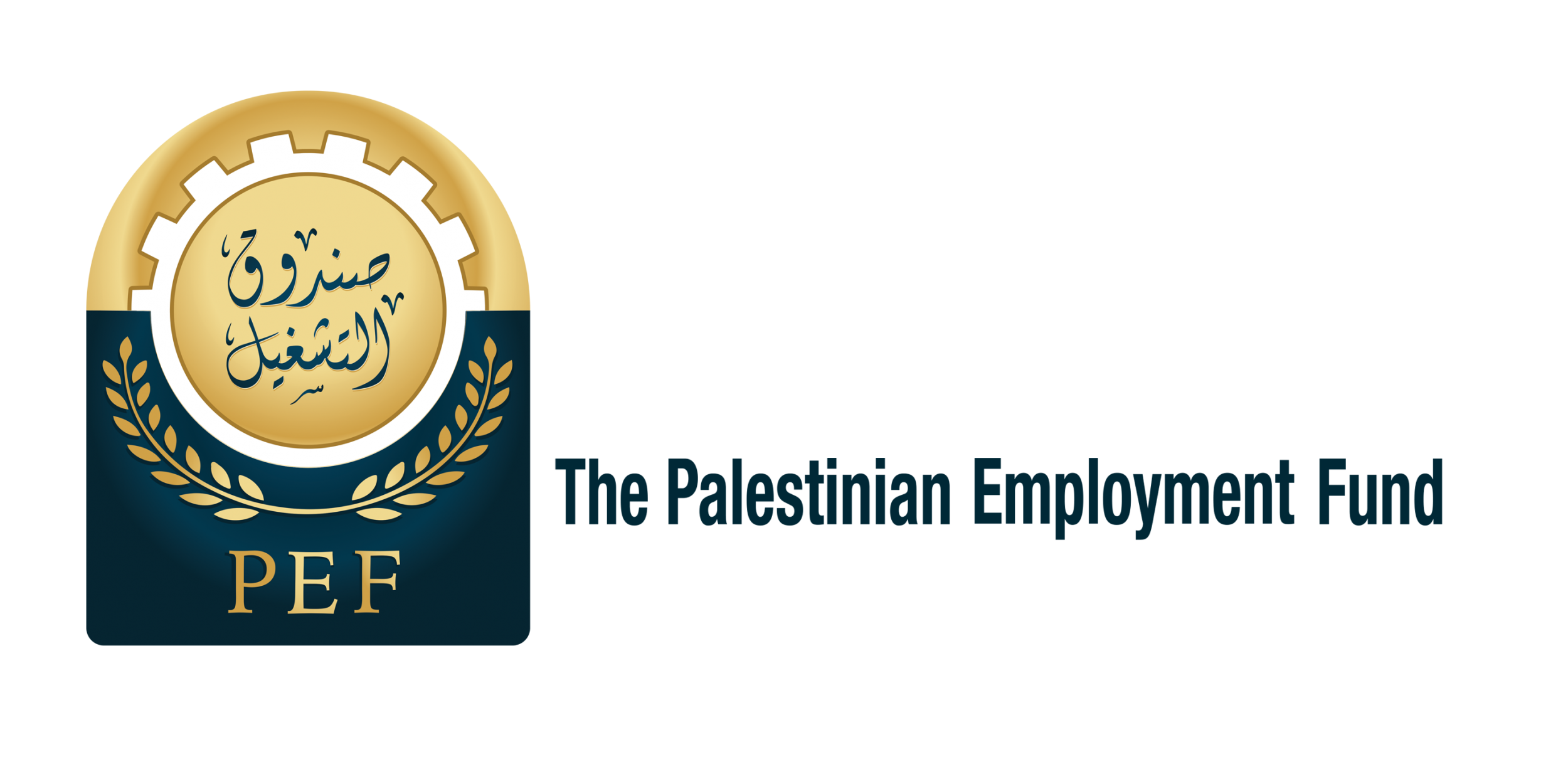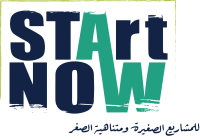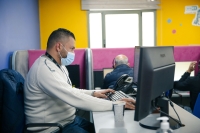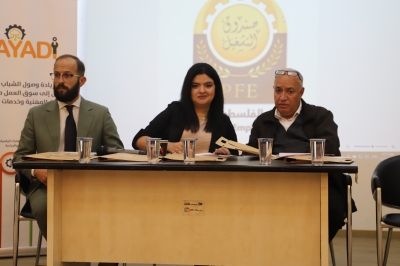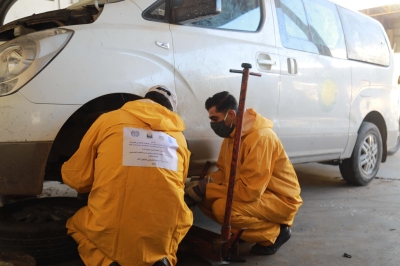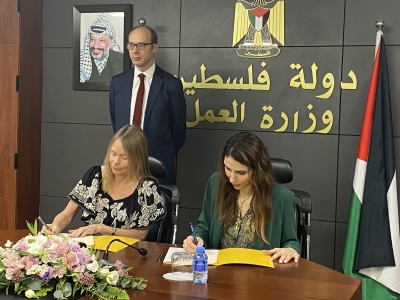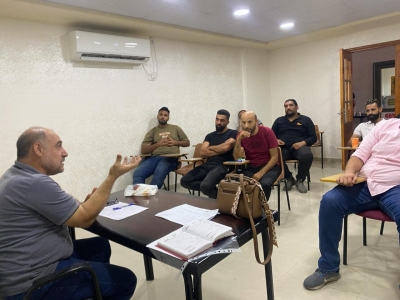PFESP conducted a discussion workshop for Tamhir program
the PFESP has organized two debate sessions in both the west bank and The Gaza strip between the education and private sectors, both sessions between the mentioned sectors were represented by institutions of higher education and institutions of technical, education and vocational training.
Dr. Nasri Abu jaish, minister of labor and the chairman of the board of directors of the PFESP, gave his opening speech in both Ramallah and The Gaza strip through a conference video call, in which after, the two workshops were held separately.
these workshops are for the “Tamhir” project which, in its turn, works on job-coaching and providing internships for unemployed graduates from higher education institutions (HE) and the Technical, Vocational Education and Training (TVET) institutions in the west bank, the Gaza strip and Jerusalem.
The PFESP is cooperating with the ministry of education, and strategic partnering with the ministry of labor in order to implement this project, not to mention working with Programme Access to the Labor Market (PALM) and the financial aid of the GIZ.
This project aims to simplify integrating young unemployed adults and those who have graduated from HE and TVET institutions in the labor market through internships and job-coaching. 400 unemployed graduates, of both genders and from areas of the West Bank, The Gaza Strip and Jerusalem.
One of the most crucial points discussed in the debate was the huge gap between the supply and demand from the academic and professional margins; meaning that there needs to be some sort of bridging between the skills of the graduates and requirements of the labor market.
In addition to that there were comparisons made between both sectors about the availability of opportunities for unemployed graduates in each one, also further discussing the reason as to why this gap exists from both an academic perspective and an occupational one. Lastly, the future effects of this project on the beneficiaries were examined and emphasizing how important this project is especially after covid-19.

